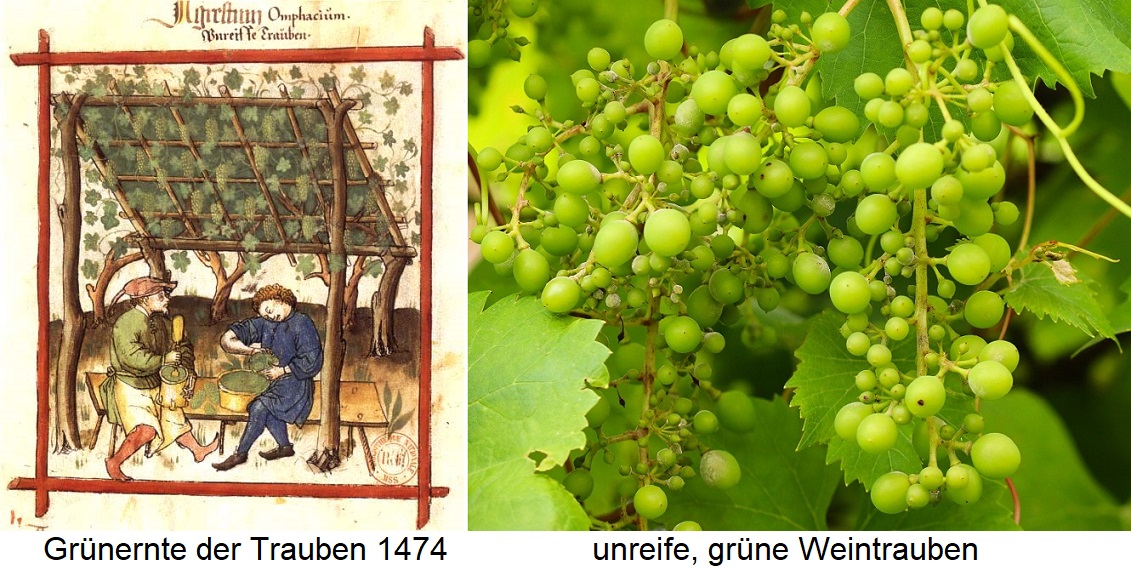Term for the juice of unripe grapes, derived from the Middle French "Vert Jus" (green juice). In Germany, the term Agrest (Agraz) was in use from the 12th to the 19th century. Verjus was already well known in Europe in ancient times as a food and remedy, as reported by Pliny the Elder (23-79). In the Middle Ages, the juice was common and widespread in Europe as a souring and seasoning agent, as well as for deglazing fried food, even among the poorer social classes. In medieval medicine, this natural product was recommended for its soothing effect on the stomach and digestion. Eventually, it was increasingly supplanted by the lemon, which was introduced and popularised in increased quantities in Europe by crusaders and pilgrims from the 12th century onwards.

Recently, there has been a renaissance of verjus. It is increasingly appreciated in top gastronomy because of its mild acidity and delicate aroma. The juice is characterised by a balance of sour, sweet, salty and savoury flavours. The acid components are much milder than vinegar and the flavour more complex and aromatic than a lemon. Unripe grapes of red and white grape varieties are used before they start to ripen (véraison). The grapes can be a by-product of thinning out (green harvest), for example. After pressing, the juice is pasteurised and filtered to finish. It is a purely natural product, as no preservatives or artificial substances are usually added. Sometimes it is also mixed with bitter orange, mandarin or grapefruit juice. Today, agrest/verjus is again produced by many producers. See also under flavourings.
Green harvest: from Wikipedia according to Commons, public domain, link
Green grapes: from Manfred Richter on Pixabay
Voices of our members

The wein.plus encyclopaedia is a comprehensive, well-researched reference work. Available anytime and anywhere, it has become an indispensable part of teaching, used by students and myself alike. Highly recommended!
Dominik Trick
Technischer Lehrer, staatl. geprüfter Sommelier, Hotelfachschule Heidelberg